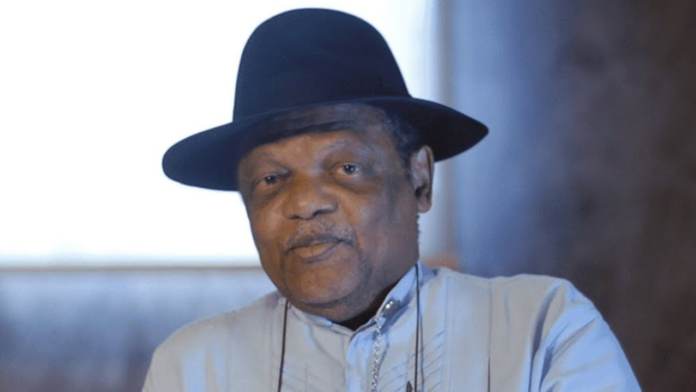Atedo Peterside, business leader and founder of Stanbic IBTC Bank, has cautioned Nigerians against turning the controversy surrounding the police invitation of Emir Muhammadu Sanusi II into an ethnic issue.
According to BusinessDay, this followed the circulation of a widely shared article, titled: “A Warning to the Yoruba-Led Federal Government” written by one Chuks Emeka.
Peterside, reacting to the article, which was shared on X by Nasir El-Rufai, former Kaduna State governor, said that while the piece was thought-provoking and aligned with concerns about the politicisation of federal institutions, its ethnic framing was unnecessary and potentially dangerous.
“I came across this same post (below) by Chuks Emeka via WhatsApp & I thank @elrufai for exposing the thought-provoking piece to a wider audience. Assuming that he truly exists, I want to place it on record that I think Chuks should simply have written as a ‘Concerned Nigerian’. That he happens to be Igbo is irrelevant,” Peterside wrote on his X (formerly Twitter) handle.
“His post is perceptive and aligns with my own view that @PoliceNG & other Federal institutions should not allow themselves to be used by politicians to ‘rubbish’ our traditional institutions,” he added.
However, Peterside also warned against using such commentary to inflame ethnic tensions: “Having said that, the way to show that we are better than those we criticise is to refuse to yield to arguments that seek to pitch one ethnic group against another on account of the perceived ‘sins’ of one man.”
The original article, published under the name Chuks Emeka on April 6, 2025, harshly criticised what it described as the “Yoruba-led federal government’s” complicity in the police’s actions against Sanusi. The writer condemned the federal government’s silence amid the police summoning the reinstated emir over his Eid visit to Kano, accusing the presidency of enabling Northern elites who “cannot stand the fact that [Sanusi] returned to the throne with dignity, public support, and historic legitimacy.”
“What is happening to Emir Sanusi is not just an attack on a man—it is an attack on intellect, courage, and the idea that a traditional ruler can also be a voice of conscience,” Emeka wrote.
“And it is being carried out under a Yoruba presidency, one that many of us across the country supported out of hope for national healing, restructuring, and competence.”
BusinessDay reports that El-Rufai, who amplified the post on his X account, has recently positioned himself as a critic of the Tinubu-led government and is working to build a coalition to challenge the ruling party ahead of the 2027 general elections.
His promotion of Emeka’s article has further drawn attention to rising political and ethnic tensions surrounding traditional leadership in Kano.
The Nigeria Police Force had earlier invited Sanusi to Abuja to give a statement on the violence that reportedly happened during Sallah celebration in Kano State last week.
The police later withdrew the invitation after advice from “respected stakeholders” and said that Sanusi’s statement will be received in Kano instead.
The controversy has sparked conversations about the role of federal institutions in intra-regional politics, the politicisation of traditional stools, and the risk of deepening ethnic rifts in the country.
Calls for restraint and justice have continued to mount, with Peterside’s remarks joining a chorus of voices urging the federal government to maintain neutrality and uphold institutional integrity.
“The issue here is not Sanusi’s title,” Emeka noted in his concluding paragraph, “It is the future of how we relate to power, culture, and conscience in this country.”



